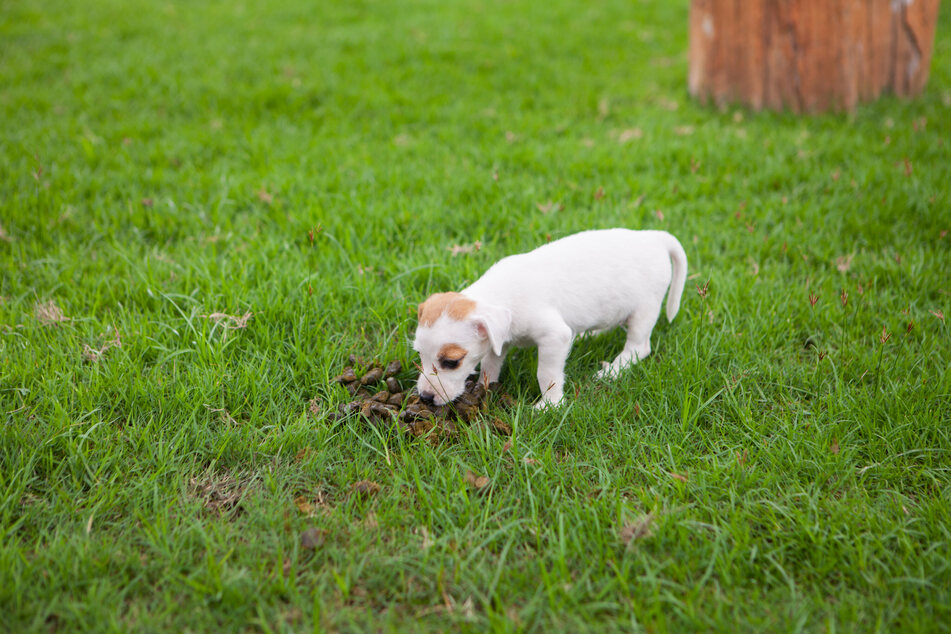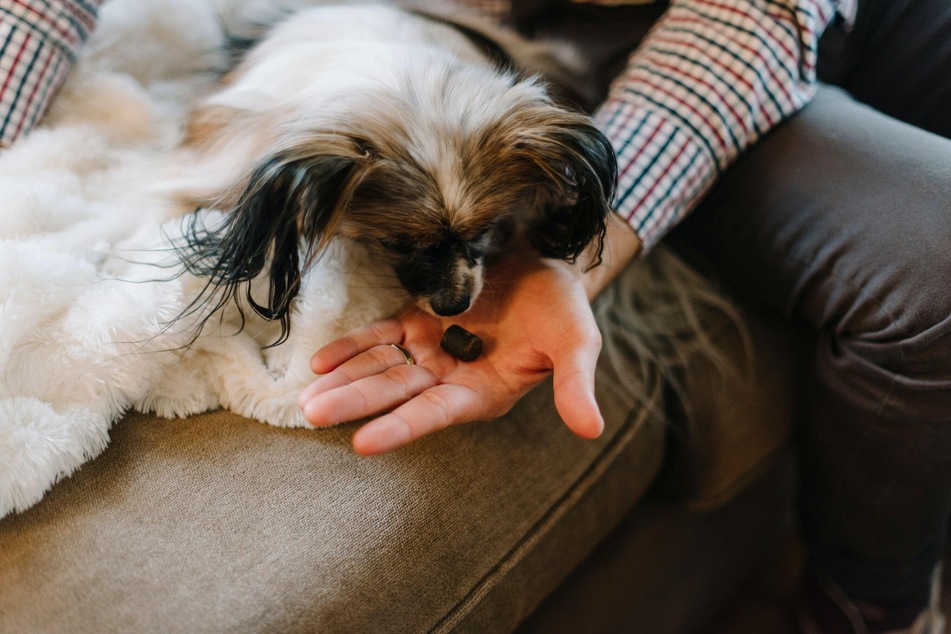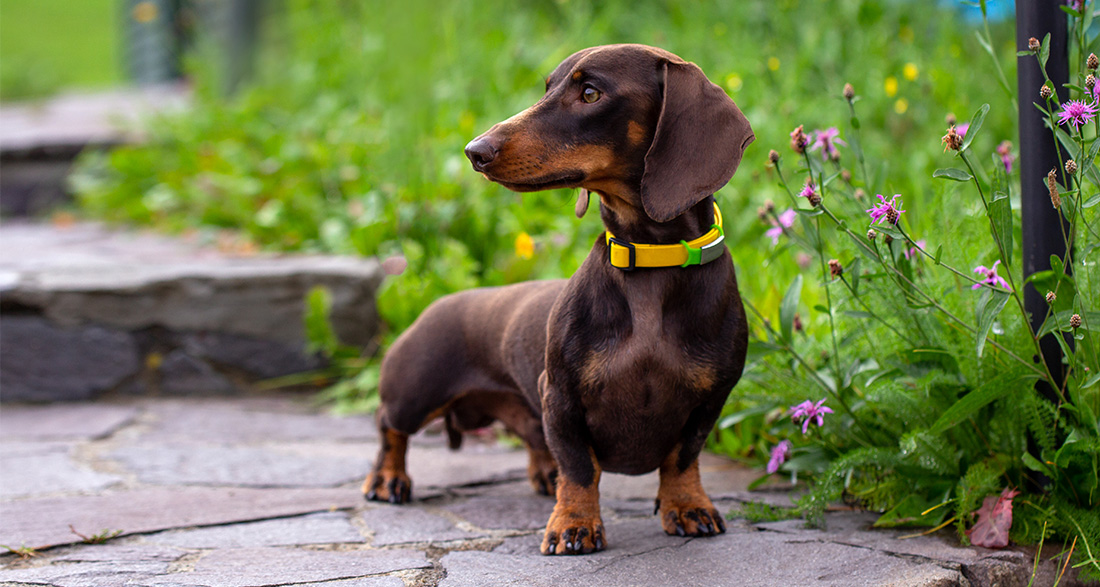When dogs roam the woods, fields, or city during walks and indulge in consuming their own feces, that of other dogs, or other animals, it is typically very unappetizing for the owners.
The act of eating feces is termed “coprophagia” in professional language. While dogs eating the feces of horses, other dogs, or themselves is not an extraordinarily unusual behavior, it can be an indication of serious issues with the dog.
If the animal is a puppy, owners should observe it attentively and try to discourage it from eating anything it encounters. However, this behavior in very young dogs is usually not a sign of illness.
If older and adult dogs are eating feces, deficiencies, illnesses, or other deficits could be potential causes. It is worthwhile to closely observe the behavior and, if necessary, treat the dog.
This dog guide explains what eating feces might mean for your dog and the measures you can take.
The dangers of this behavior for dogs
Eating feces can have concerning consequences for both the dog and its owners.
Animal feces may be infected with worms and other parasites, which might be species-specific and, therefore, not necessarily affect the dog. However, they often cause symptoms in dogs, such as vomiting and diarrhea.
The potential concentration of medications in feces is particularly problematic. For example, if dogs consume horse droppings, they may ingest significant amounts of substances from deworming medications like Ivermectin. This substance is especially dangerous, even in small doses, for dogs with the MDR1 defect, causing symptoms such as vomiting, muscle tremors, paralysis, and even death.
This behavior also poses several risks for dog owners. In extreme cases, there can be smear infections. The bad breath caused by eating feces is also very unpleasant.

Why is your dog eating feces?
If owners want to prevent their dogs from eating feces, they should first find out why their four-legged friend is exhibiting this behavior. It is also essential to consider the type of feces the dog is eating. The following are possible reasons why dogs eat feces, but each dog is an individual, so it should not be overly generalized. If owners are uncertain, they should consult a veterinarian.
Dog eating feces from itself, other dogs, or other carnivores:
- Hunger
- Belief that it is nutritious (feces concentrate scent and taste enhancers, which appeal especially to puppies)
- Intestinal disease
- Imbalance of digestive enzymes, gut bacteria, or other microorganisms in the intestinal flora
- Attention or treats received
- Malnutrition
Dog eating feces from horses and other herbivores:
- Nutrient deficiency
A normal and harmless behavior in dogs is when the mother eats the feces of her puppies in the early stages, and the puppies also eat theirs.
What to do if the dog eats feces
If dog owners notice that their pet is eating feces, they should observe this closely. If feces-eating occurs repeatedly, the animal may have physical or psychological problems.
For other behavioral abnormalities or uncertainties, it is recommended to have the dog examined and get a blood test at the veterinarian. Especially when the dog eats its own feces, a visit to the vet can be very enlightening.
To address the issue correctly, dog owners should observe their pet for three to four weeks and note when, what, and how much the dog eats. This documentation should also include treats and snacks. Additionally, it is important to record when the dog eats feces, from which animal the feces originates, and who is with the dog.
In the records, a specific pattern may be identified, such as the dog always eating feces at a particular time or only doing so in the presence of a specific person. If there are temporal patterns, it may indicate malnutrition or hunger. If it seems to be related to certain combinations of people, the dog may be seeking attention.

If the dog’s energy needs are not adequately met, it is advisable to better distribute the amount of food throughout the day or increase it. Additionally, dog owners should focus on a balanced diet with high-quality or homemade food. A gradual transition to simple and healthy food helps many dogs with digestive problems.
Sometimes it is necessary to pay more attention to the dog during walks to prevent it from eating feces. However, it is essential not to do so precisely when the dog wants to eat feces, as this would allow the dog to achieve its goal.
It is helpful to restrict the dog’s opportunities to eat feces by promptly removing feces piles at home, in the garden, and during walks.
If the dog wants to eat feces, it is best to ignore it, as the withdrawal of attention is punishment enough. For the dog, eating feces becomes an unrewarding behavior, and it will soon stop. Training with an interruption signal and a reward when the dog stops eating feces and comes to the owner is another possible approach.
Instead, make the walk exciting, engage the dog, and, for example, do not concentrate on the phone or listen to music all the time. Dogs quickly learn that they don’t need to eat feces to get attention from their owners.
Various home remedies such as Harzer cheese, bananas, or vitamins mixed into the food can have the opposite effect on dogs with sensitive stomachs and should only be done in consultation with a veterinarian.
Dogs that regularly eat feces may have serious problems and should be examined. Dog owners should not hesitate to seek help from veterinarians and dog trainers if they cannot get their pet’s behavioral disorder under control.


